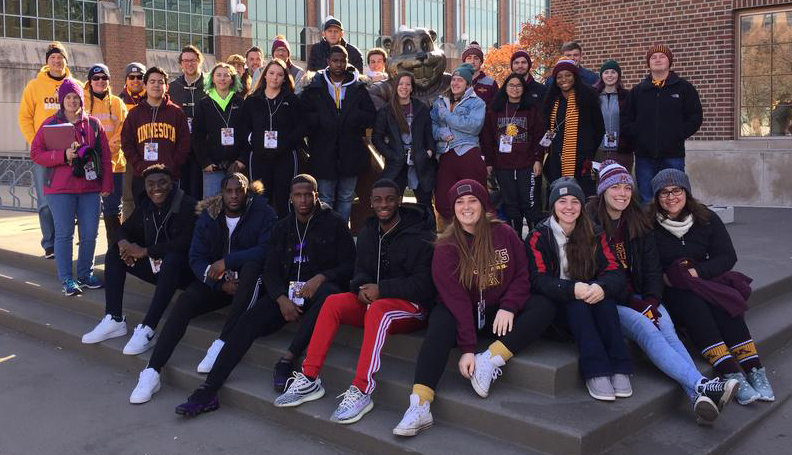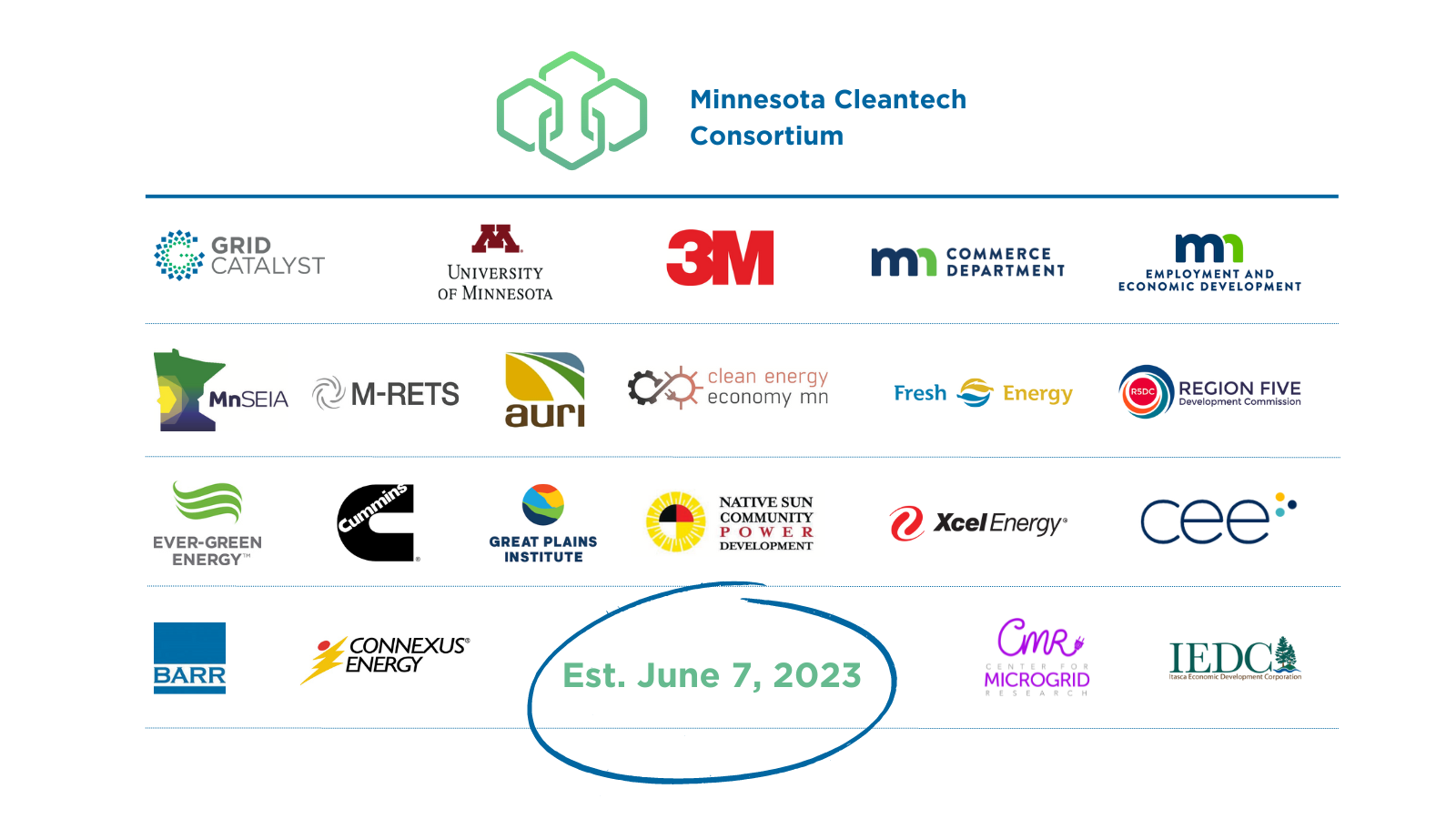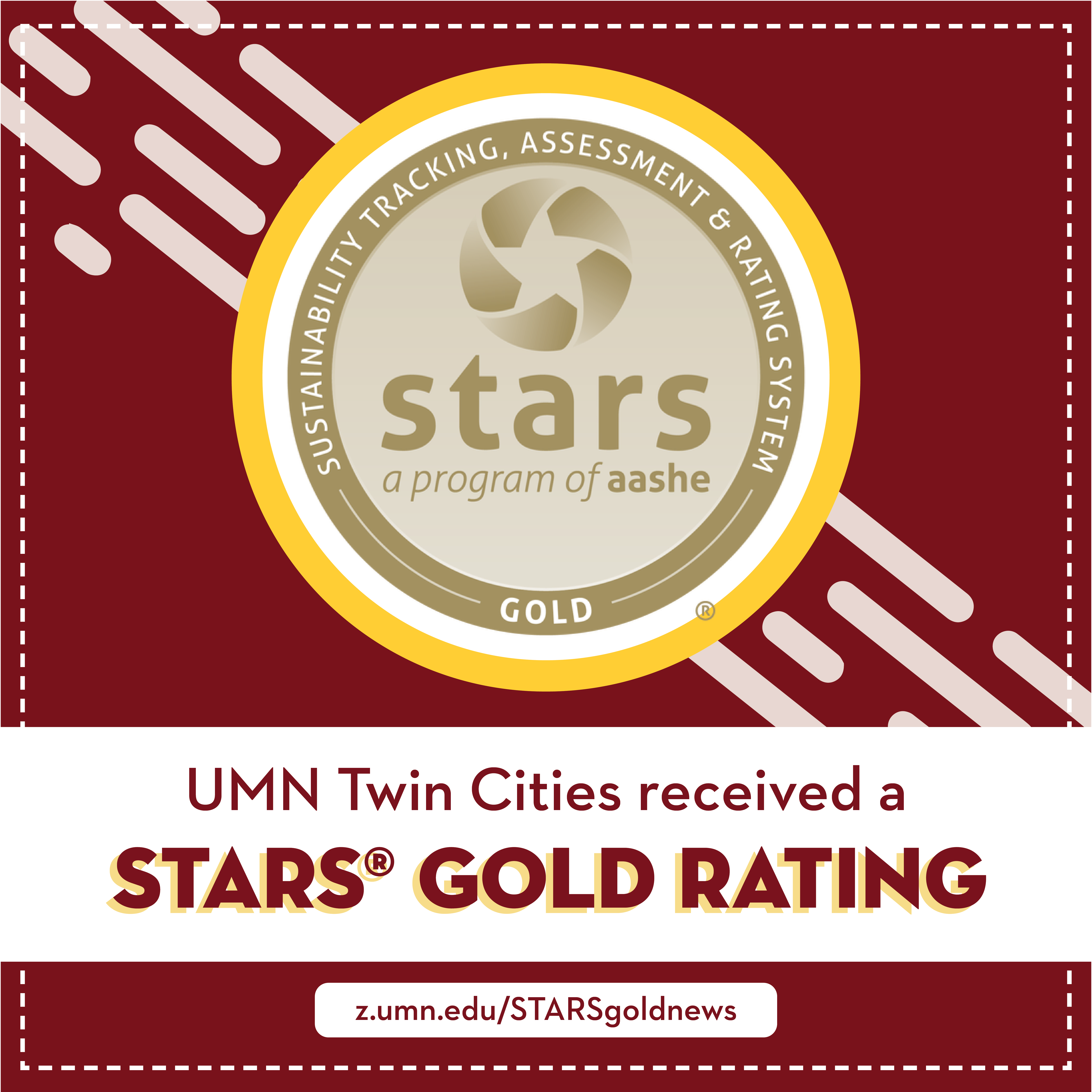
On November 9th, the University of Minnesota Twin-Cities hosted a group of students from Crookston, Duluth, and Morris campuses, all interested in learning more about sustainability. Some of these students work in the sustainability offices at their respective campuses, some study it, and others are simply interested in sustainability and took the opportunity to learn more.
The tour began at TCF Bank Stadium with the Gopher vs. Penn State football game (Ski-U-Mah!), after which the group learned more about the zero waste initiative the stadium has been working toward over the past few years. The University of Minnesota-Twin Cities uses the industry standard of 90% trash free to define zero waste. In order to be considered zero waste, an event must ensure that 90% or more of the materials used at the event must be compostable, recyclable, or reusable.
Achieving this goal at the stadium requires a lot of hard work and coordination across many job functions. Vendors must ensure that all the products available for purchase are compostable or recyclable, recycling and compost coordinators make sure bins are placed in the right areas, and sorters make sure every item thrown away is disposed of in the right bin. Yes, you’re reading that correctly - there are people who hand-sort every single item that is thrown away! It is not an easy effort. However, it diverts thousands upon thousands of pounds of waste from the Hennepin Energy Recovery Center incinerator, which burns garbage from all over Hennepin County to create energy, per game. Students were able to have a look into the sort room where sorters go through bags to ensure all organic material is composted, recyclables are recycled, and trash ends up in the trash. It came as a shock to many that the waste was hand-sorted. However, the previous game had the highest diversion rate this season at 83% diversion, nearing the 90% zero waste goal!
After celebrating the Gopher football win, the group went on a walking tour around campus to check out the sustainable areas on the Twin Cities campus. Living Labs were a highlight, as the tour continued to the Rapson Rain Garden and outdoor area that recently incorporated prairie plants and reclaimed stone blocks from other construction projects to create a seating area. The solar panels on West Bank were another main stop on the tour, including discussion about solar panels on other UMN campuses and some of the challenges and successes each campus has experienced in implementing renewable energy.
The tour took a break from the cold and went inside to learn about the ‘Choose Reuse and Win’ program marked by stickers on drinking fountains. Through this program, students can scan the barcode through the “Fill it Forward” app and receive prizes for using refillable containers. Up next: the four-bin system used on campus to sort waste into organics, recycling, paper, and bottles and cans. In 2018, this system diverted 39% of waste by incorporating organics and recycling rather than sending all waste to the incinerator. Students then learned about Bruininks Hall’s LEED Gold certification, meaning that the building was designed and constructed in a way that is highly efficient and cost-saving, earning points across several categories to earn one of the four rating levels: certified, silver, gold, or platinum. Another LEED certified building on campus is TCF Bank Stadium, which earned a silver level certification and was the first LEED certified collegiate or professional football facility in the United States!
The group ended the day with a meal at Pioneer Dining Hall, eating on a table made from repurposed wood from trees cut down from the Pioneer Hall courtyard. The students enjoyed the chance to meet students from other UMN campuses who are making strides in their own sustainability programs and educating themselves on the importance of sustainability.
If you are looking to learn more about sustainability on campus, take a look at the virtual tour on italladdsup.umn.edu under the “explore” tab!
A huge thank you to Brady and Jeff at TCF Bank Stadium who made the zero waste tour possible, and another thank you to the great students and educators working toward a more sustainable future.


